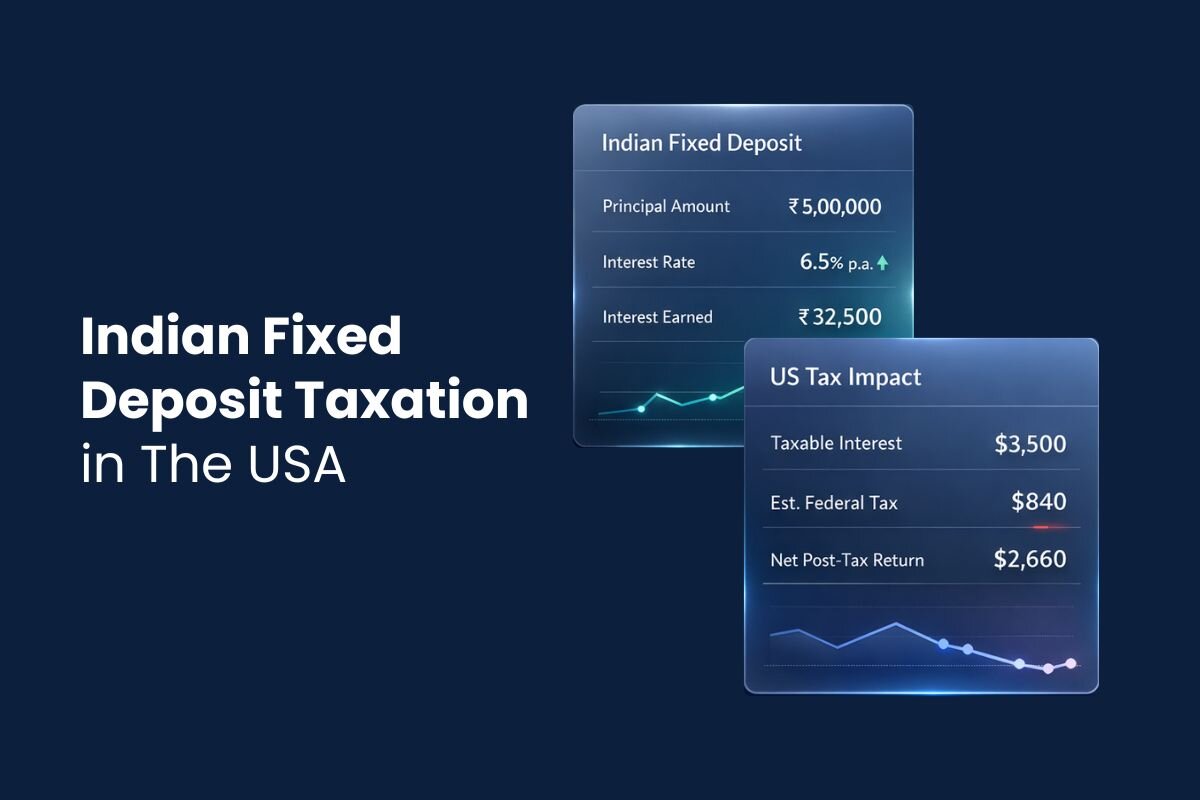Have you been dreaming of owning a piece of farmland back home? Maybe you want to reconnect with your roots, build a retirement retreat, or invest in India's growing agricultural sector. Here's the reality check: as an NRI, you cannot directly purchase agricultural land in India.
The Foreign Exchange Management Act (FEMA) strictly prohibits Non-Resident Indians from buying farmland, plantation properties, or farmhouses. But before you give up on your dream, there's more to the story. While direct purchase is off the table, there are legal ways to own agricultural land through inheritance, gifts, and in rare cases, special permissions.
In this guide, you'll discover exactly what FEMA allows, the penalties for violations (which can be as high as 3x the transaction amount), and the legitimate alternatives available to you in 2026.
Key Takeaway
- NRIs cannot directly buy agricultural land in India under FEMA regulations, but can acquire it through inheritance or gifts from resident Indian relatives
- Penalties for violations are severe, ranging from 3 times the transaction value to property confiscation and criminal prosecution under the Benami Transactions Act
- State-specific rules add complexity, with Karnataka, Maharashtra, and Gujarat having stricter eligibility requirements even for residents
- Legal alternatives exist including setting up agricultural companies, leasing farmland, or converting land from agricultural to non-agricultural use
- Repatriation is limited to $1 million per year when selling inherited agricultural land, with mandatory TDS deduction and capital gains tax
- Punjab and Kerala are proposing changes to allow NRI agricultural land purchases, though no final amendments have been implemented as of 2026
What Does FEMA Say About NRIs Buying Agricultural Land?
The Foreign Exchange Management Act, 1999 is the law that governs all property transactions for Non-Resident Indians. Under FEMA regulations enforced by the Reserve Bank of India (RBI), NRIs and Persons of Indian Origin (PIOs) are explicitly prohibited from purchasing agricultural land, plantation properties, or farmhouses in India without special permissions.
This restriction exists to protect India's agricultural resources from speculative investments and ensure farmland remains in the hands of those actively engaged in farming.
The prohibition covers:
- Agricultural land of all types (irrigated, dry land, wetland)
- Plantation properties (tea estates, coffee plantations, rubber estates)
- Farmhouses even if intended for residential use
However, while FEMA sets the national policy, land ownership is a state subject in India, meaning rules can vary, making some states more NRI-friendly than others.
What you need to know:
Even if you were born in India, hold an Indian passport, and your entire family lives there, once you become an NRI, this restriction applies to you. Your OCI card-holding spouse faces the same limitations.
Can NRIs Inherit Agricultural Land from Family Members?
Yes, inheritance is the primary legal way for NRIs to acquire agricultural land in India.
NRIs can inherit agricultural land from a resident Indian, and if an NRI inherits agricultural land, they become the legal owner of the property. This includes inheritance through a will or under Hindu succession laws.
Requirements for legal inheritance:
- The inheritance must be legitimate and properly documented
- A legal heir certificate or succession certificate is required
- The transfer must comply with state-specific succession laws
- No monetary consideration (payment) should be involved
NRIs are allowed to inherit agricultural land, enabling them to maintain a connection with their heritage and potentially engage in agricultural activities.
Important note: You can also inherit agricultural land from another NRI, though this may require RBI approval in certain cases.
Documents needed:
- Death certificate of the deceased
- Legal heir certificate or succession certificate
- Will (if applicable)
- Property documents (title deed, sale deed)
- Your NRI status proof (passport, visa)
Once you inherit the land, you have two options: retain it for personal use or sell it to a resident Indian citizen only.
Can Resident Indians Gift Agricultural Land to NRIs?
Yes, but with specific conditions.
There is no restriction for NRIs and OCIs to get NRI agricultural lands, plantation property, or farmhouse as a gift from a person resident in India. However, the gifting must follow FEMA guidelines strictly.
Who can gift you agricultural land
According to FEMA, only specific relatives who are resident Indians can gift agricultural land to you:
- Parents
- Siblings (brother or sister)
- Spouse
- Children
- Grandparents
- Grandchildren
- Spouse's parents or siblings
The critical restriction: An NRI or OCI cannot gift such property to another NRI. An NRI has to gift it to a resident citizen of India.
How the gift process works:
- A registered Gift Deed must be executed
- The deed should clearly state no consideration (money) is involved
- Stamp duty must be paid as per state rules
- The deed must be registered with the Sub-Registrar
- Mutation in revenue records should be completed
Tax implications: While receiving a gift from specified relatives is tax-free under the Income Tax Act, you should maintain proper documentation to prove the relationship and gift nature.
What Are the Penalties If an NRI Illegally Buys Agricultural Land?
The consequences of violating FEMA regulations are severe and can be financially devastating.
Under Section 13 of FEMA, an NRI can face penalties amounting to three times the transaction value or ₹2 lakh, whichever is higher. But that's just the beginning.
Legal consequences include:
- Void Transaction: If an NRI purchases agricultural land without approval, the transaction is considered null and void, meaning no legal rights over the land are conferred.
- Property Confiscation: Authorities have the power to seize the land under the FEMA (Adjudication Proceedings and Appeal) Rules, 2000
- Criminal Prosecution: If fraudulent methods, such as benami transactions, are used, the NRI may face additional charges under the Benami Transactions (Prohibition) Act, 1988, leading to criminal prosecution
- Additional Penalties: The Enforcement Directorate can impose a hefty penalty, which can be up to 25% of the fair market value of the property, and initiate criminal proceedings that could lead to imprisonment
Real case example: An NRI purchased agricultural land and the Enforcement Directorate worked out undue gains to Rs. 24 lakh approximately, and the contravention was regularized through compounding on payment of Rs. 25 lakh approximately.
What if you've already bought land illegally?
You have limited options to rectify the situation:
- Sell the property immediately to a resident Indian citizen
- Transfer it to a resident Indian relative
- Apply for compounding (voluntarily admitting the violation and paying penalties)
If an NRI is found to have violated the rules, they may face severe penalties that can go up to 300% of the transaction amount.
How Do State-Specific Rules Affect NRI Land Ownership?
While FEMA provides the national framework, individual states have their own agricultural land laws that add another layer of complexity.
Karnataka:
Recent amendments allow NRIs to purchase farmland under certain income and land ceiling limits, making it attractive but legally complex. However, as of the amendments made in 2020, the Karnataka Land Reforms Act no longer restricts ownership of agricultural land based on an individual's agricultural background.
The key requirement:
In Karnataka, the buyer's income from non-agricultural occupations should not exceed ₹25 lakh annually.
Maharashtra:
Only an Agriculturist can purchase an Agricultural land in the State of Maharashtra. However, in case if a person holds an Agricultural land anywhere else in India, he can still be deemed an Agricultarist in the State of Maharashtra.
Maximum ceiling limit: 54 acres
Gujarat:
Agricultural lands can't be Purchased by a Non Agricultarist in the State of Gujarat. Earlier only Agricultarist in the State of Gujarat could Purchase an Agricultural land, but in 2012, the Gujarat High Court had ordered that any Agricultarist in India can Purchase an Agricultural land in Gujarat .
Tamil Nadu:
In Tamil Nadu, there is no restriction for Purchase of any Agricultural land. Anyone can Purchase an Agricultural land. However the maximum extent of land which can be Purchased is 59.95 Acres of land.
What this means for you:
Even if FEMA restrictions were lifted for NRIs, you would still need to comply with state-specific rules. In states like Maharashtra and Gujarat, proving agriculturist status remains mandatory.
Alternatives to Buying Agricultural Land for NRIs
While direct purchase is prohibited, several legal alternatives allow you to invest in India's agricultural sector.
1. Set Up an Agricultural Company
NRIs can set up a Private Limited or LLP company in India. The company can then buy agricultural land if the business is related to agriculture, such as agribusiness operations, organic farming ventures, or agricultural research facilities.
Requirements:
- The company must be India-incorporated
- Business activities must be agriculture-related
- Compliance with the Companies Act is mandatory
- FDI regulations must be followed
2. Lease Agricultural Land
While NRIs cannot buy agricultural land, leasing it for agricultural purposes may be permitted under certain state laws, but this varies by region and specific circumstances.
Leasing advantages:
- No ownership restrictions apply
- Lower capital investment required
- Flexible arrangements possible
- Can generate income from farming operations
3. Buy Converted Non-Agricultural Land
NRIs can buy land legally converted from agricultural to non-agricultural use. This land can be used for residential construction, commercial development, or industrial projects.
Process:
- Identify agricultural land marked for conversion
- Wait for official conversion by state authorities
- Once converted to NA (non-agricultural), purchase freely
- Use for permitted non-agricultural purposes
4. Invest in Agricultural Businesses
You can invest in:
- Agritech startups through FDI-compliant routes
- Agricultural real estate funds
- Food processing companies
- Agricultural equipment manufacturers
5. Wait for Policy Changes
Punjab along with Kerala proposed changes in the regulations regarding NRIs investment in agricultural land in India. Punjab and Kerala would jointly advocate for policy changes to benefit NRIs.
While these proposals were made in 2024, no final amendments have been implemented yet. Monitor RBI and state government announcements for updates.
What Happens When You Sell Inherited Agricultural Land?
Once you inherit or receive agricultural land as a gift, you may eventually want to sell it. Here's what you need to know.
Who can you sell to?
NRIs can sell agricultural land, plantation property, or farmhouse property provided the buyer is a citizen of India and resides in India.You cannot sell to:
- Another NRI
- A foreign national
- An OCI cardholder
- A Person of Indian Origin (PIO)
Tax implications:
Rural agricultural land is not a capital asset hence capital gains tax is not applicable. However, if the agricultural land is defined as urban agricultural land, it is chargeable under capital gains tax.
For urban agricultural land:
- Held for more than 24 months = Long-term capital gains (12.5% without indexation)
- Held for less than 24 months = Short-term capital gains (per your income tax slab)
TDS deduction:
When an NRI sells inherited or gifted agricultural land, the buyer must deduct TDS before making payment to the NRI. The TDS rate varies based on whether it's long-term or short-term capital gains.
Repatriation of sale proceeds:
Sale proceeds can be repatriated up to USD 1 million per financial year, subject to tax compliance and necessary documentation.
Documents required for repatriation:
- Form 15CA (declaration by buyer)
- Form 15CB (CA certificate for amounts above ₹50 lakh)
- Tax payment receipts
- Sale deed
- Bank certificate
The sale proceeds must be credited to your NRO (Non-Resident Ordinary) account first, from where repatriation can be processed.
DTAA benefits:
If the NRI is from a country that has a Double Taxation Avoidance Agreement (DTAA) with India, they may be eligible for lower tax rates.
Can You Get RBI Approval to Buy Agricultural Land?
Technically yes, but practically very rare.
NRIs need RBI approval for any agricultural land purchase. The purpose of the purchase must be clearly stated and intended for genuine agricultural use.
The application process:
The NRI must submit a formal request under Section 6(3) of FEMA, detailing the purpose of acquisition and its intended use. Since land is a state subject, RBI may seek the state government's opinion on whether the acquisition should be permitted.
Evaluation criteria:
- Purpose justification: Must demonstrate genuine agricultural intent
- Public interest: Linked to agricultural development, research, or farmer welfare
- Regulatory compliance: Must meet RBI's citizenship and local land ownership requirements
- State government opinion: Since land is a state subject, state approval may be required
It is crucial to note that such approvals are discretionary and not a legal right. In practice, the RBI has rarely permitted NRIs to purchase agricultural land unless the request is backed by substantial agricultural or public welfare objectives.
Where to apply:
Address your application to: The Chief General Manager Reserve Bank of India Central Office Exchange Control Department Foreign Investment Division Mumbai 400 001
Reality check: Getting RBI approval is extremely difficult and time-consuming. Most applications are rejected unless they serve significant public interest or agricultural development goals. Don't count on this as a viable option.
Conclusion
While the law clearly states that NRIs cannot directly buy agricultural land in India under FEMA, you're not completely locked out of owning farmland.
Focus on the legal routes: inherit land from your family, accept it as a gift from resident Indian relatives, or explore business structures like agricultural companies if you're serious about farming.
If you've already purchased land illegally, take immediate action to transfer it to a resident Indian to avoid penalties that can reach 3 times the transaction value plus property confiscation.
The agricultural sector remains restricted for good reason, but with proper planning and legal guidance, you can still maintain your connection to India's farmland while staying fully compliant with the law.
About the Author

By Prakash
CEO & Founder of InvestMates
Prakash is the CEO & Founder of InvestMates, a digital wealth management platform built for the global Indian community. With leadership experience at Microsoft, HCL, and Accenture across multiple countries, he witnessed firsthand challenges of managing cross-border wealth. Drawing from his expertise in engineering, product management, and business leadership, Prakash founded InvestMates to democratize financial planning and make professional wealth management accessible, affordable, and transparent for every global Indian.




